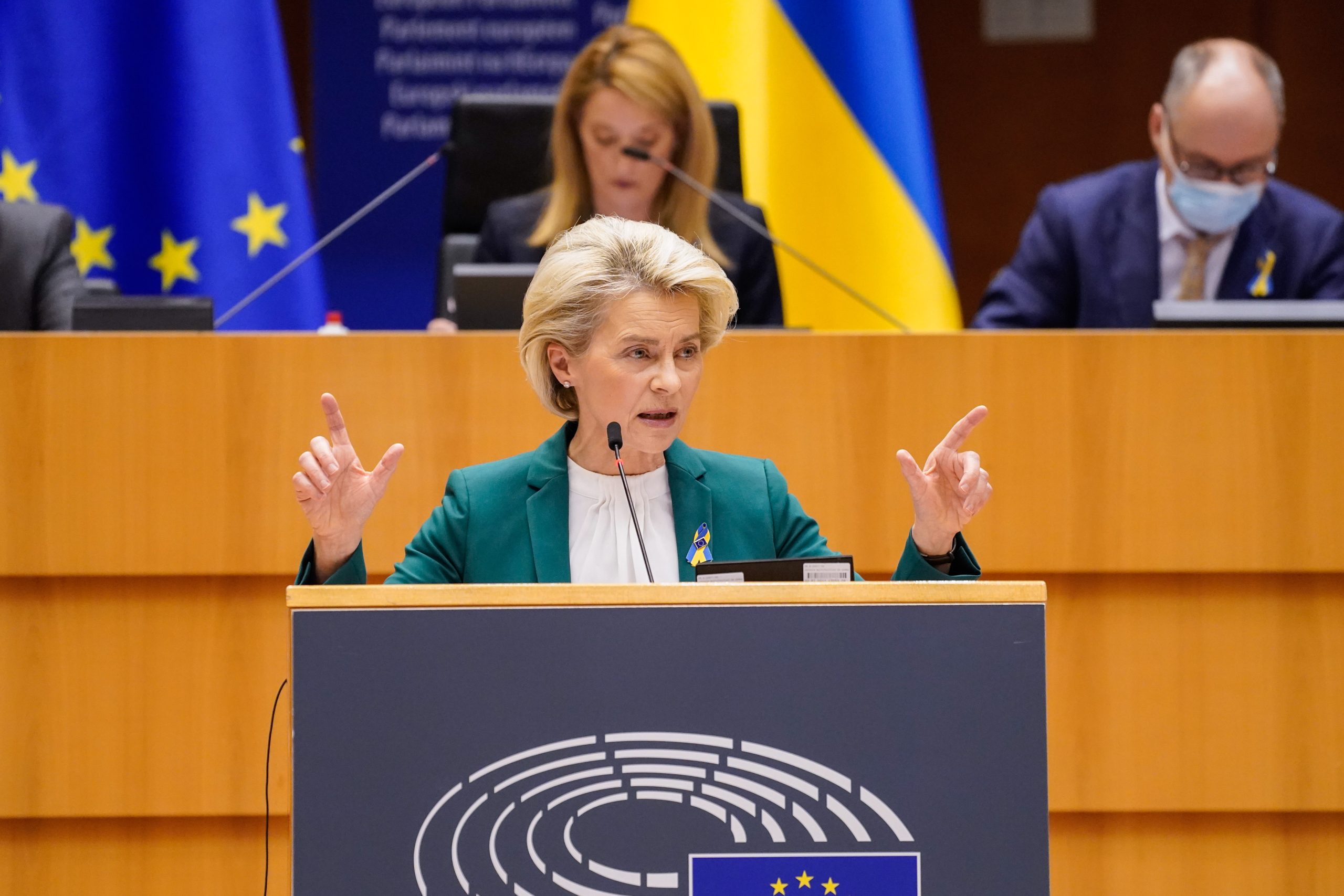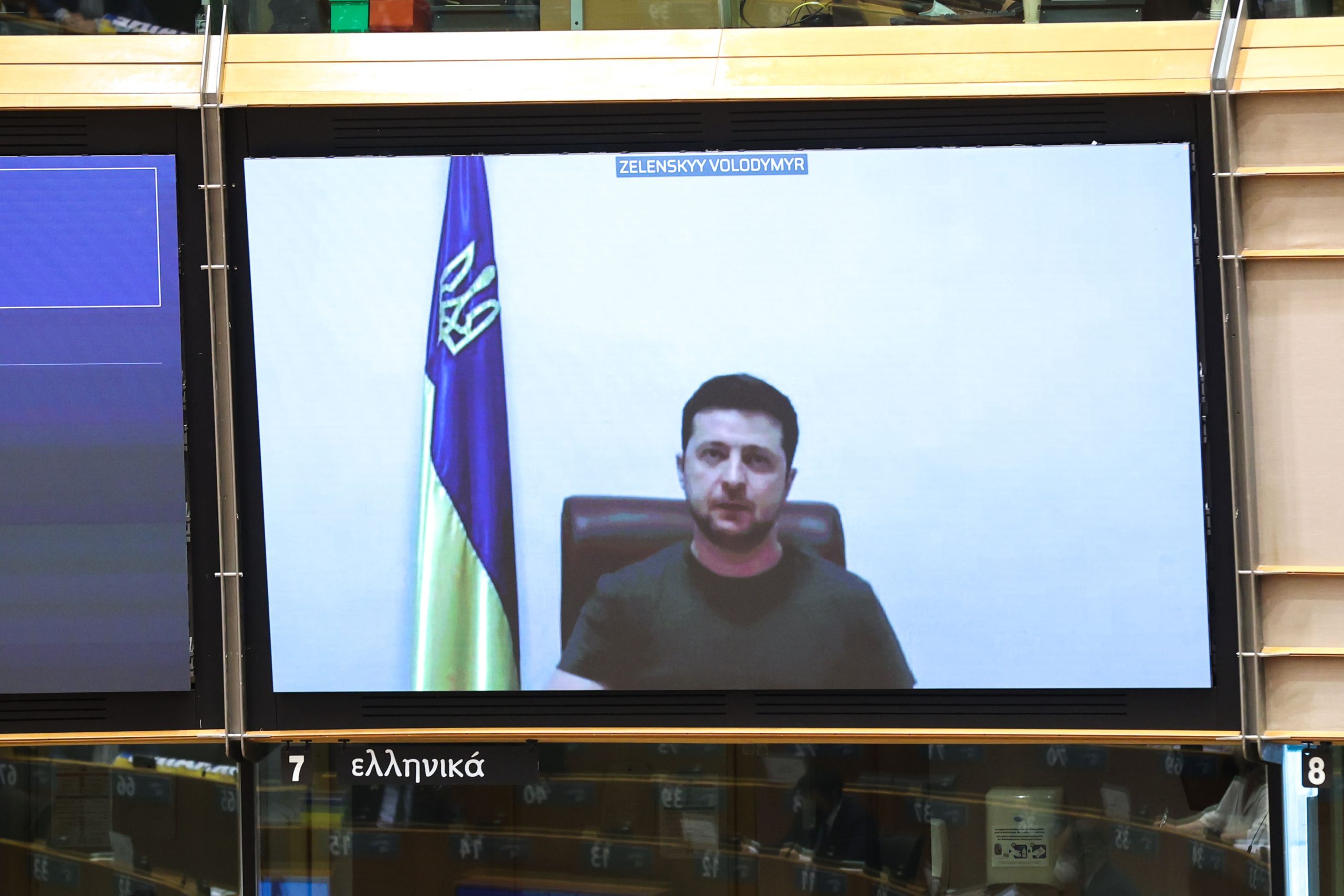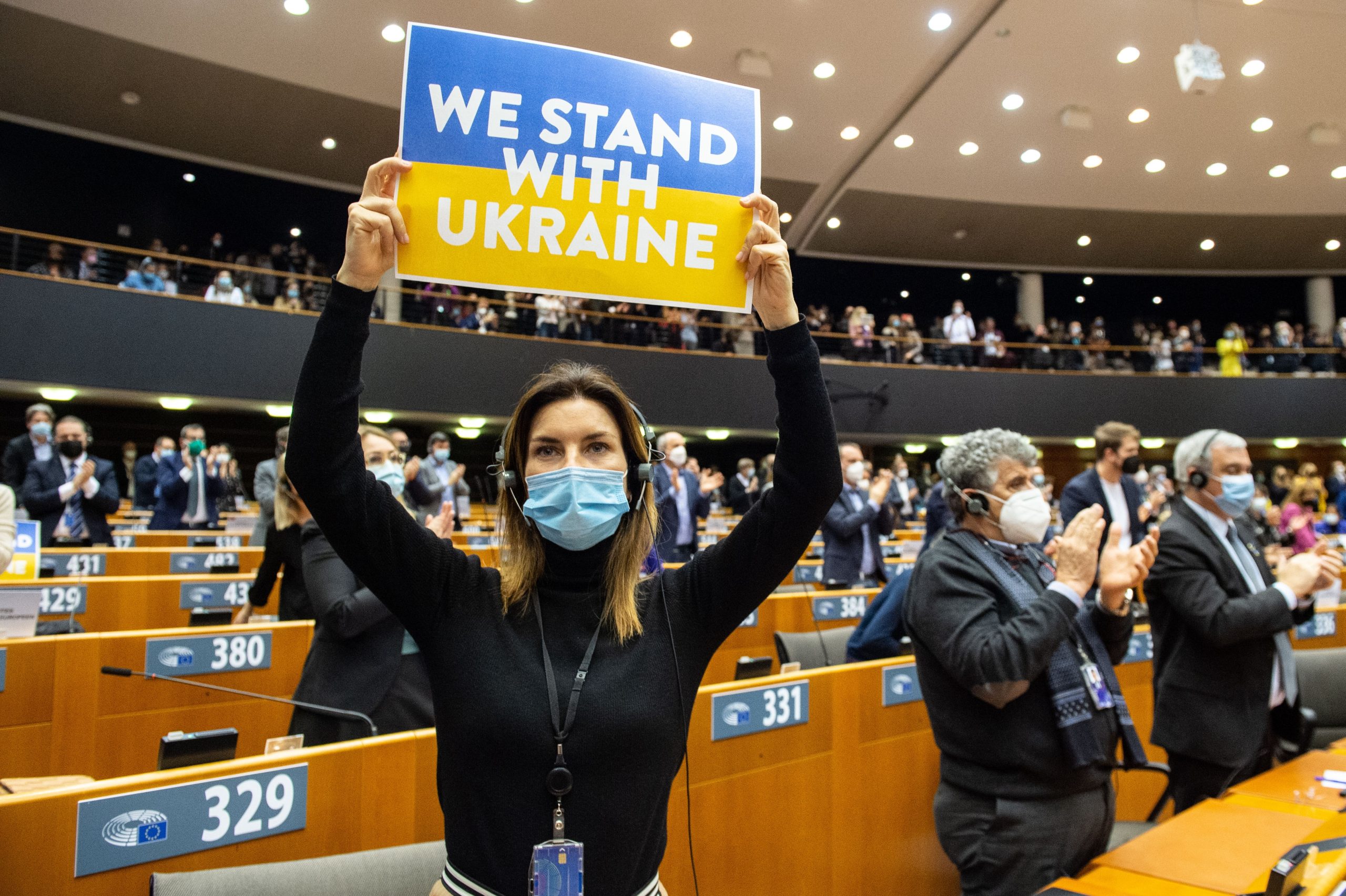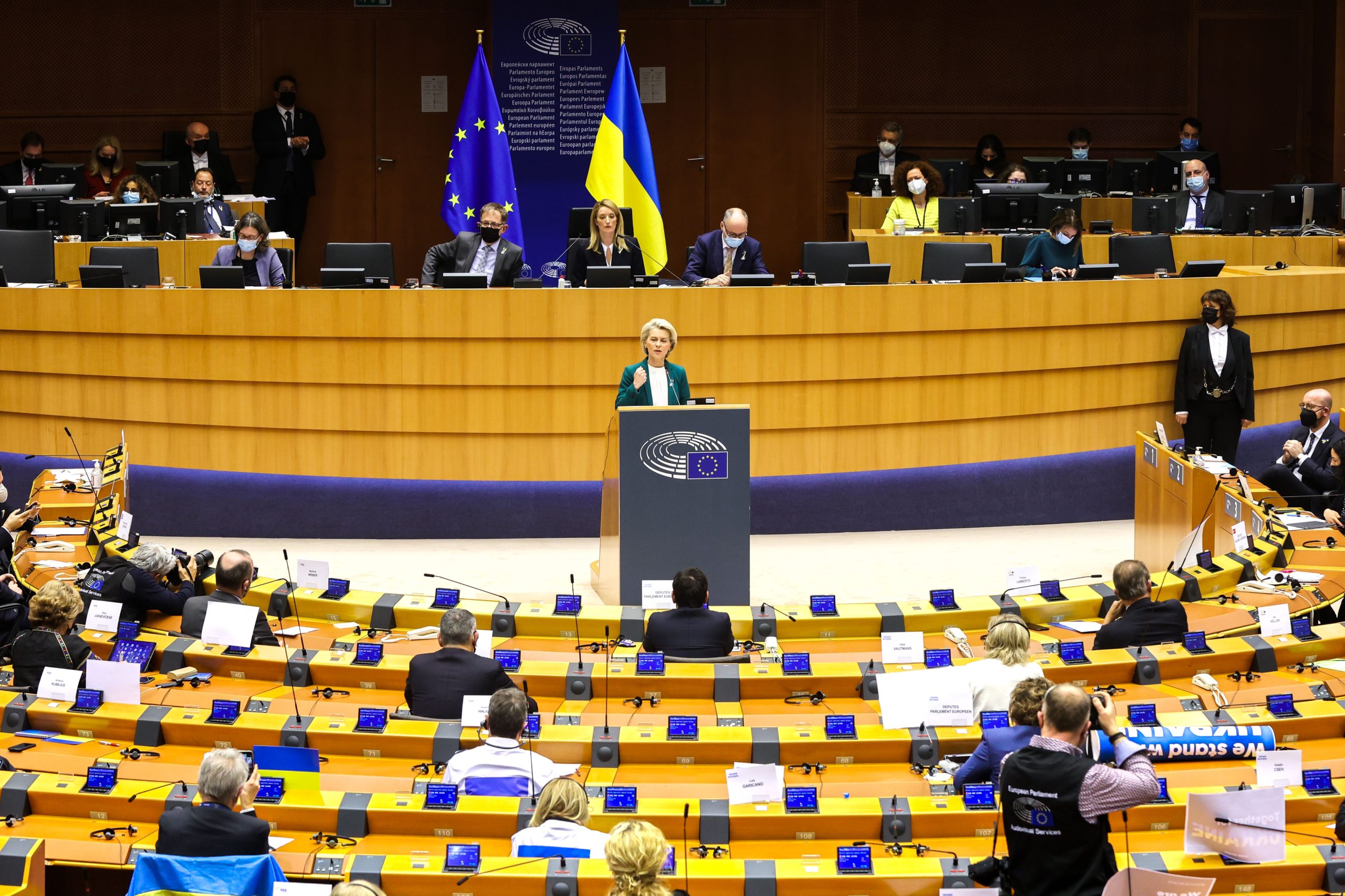Madam President,
Honourable Members,
War has returned to Europe. Almost thirty years after the Balkan Wars, and over half a century after Soviet troops marched into Prague and Budapest, civil defence sirens again went off in the heart of a European capital. Thousands of people fleeing from bombs, camped in underground stations – holding hands, crying silently, trying to cheer each other up. Cars lined up towards Ukraine’s Western borders, and when many of them ran out of fuel, people picked up their children and backpacks and marched for tens of kilometres towards our Union. They sought refuge inside our borders, because their country was not safe any longer. Because inside Ukraine, the gruesome death count has begun. Men, women and children are dying, once again, because a foreign leader, President Putin, decided that their country, Ukraine, has no right to exist.
Honourable Members,
This is a moment of truth for Europe. Let me quote the editorial of one Ukrainian newspaper, the Kyiv Independent, published just hours before the invasion began: ‘This is not just about Ukraine. It is a clash of two worlds, two polar sets of values.’ They are so right. This is a clash between the rule of law and the rule of the gun; between democracies and autocracies; between a rules-based order and a world of naked aggression. How we respond today to what Russia is doing will determine the future of the international system. The destiny of Ukraine is at stake, but our own fate also lies in the balance. We must show the power that lies in our democracies, the power of people that choose their independent paths, freely and democratically.

Today, a Union of almost half a billion people has mobilised for Ukraine. The people of Europe are demonstrating in front of Russian embassies all across our Union. Many of them have opened their homes to Ukrainians – fleeing from Putin’s bombs. And let me thank especially Poland, Romania, Slovakia and Hungary for welcoming these women, men and children. Europe will be there for them, not only in these first days, but also in the weeks and months to come. This is why we are proposing to activate the temporary protection mechanism to provide them with a secure status and access to schools, medical care and work. They deserve it. We know this is only the beginning. More Ukrainians will need our protection and solidarity. We are and will be there for them.
Our Union is showing a unity of purpose that makes me proud. At the speed of light, the European Union has adopted three waves of heavy sanctions against Russia’s financial system, its high-tech industries and its corrupt elite. This is the largest sanctions package in our Union’s history. We do not take these measures lightly, but we feel we had to act. These sanctions will take a heavy toll on the Russian economy and the Kremlin. We are disconnecting key Russian banks from the SWIFT network. We also banned the transactions of Russia’s central bank, the single most important financial institution in Russia. This paralyses billions in foreign reserves, turning off the tap on Putin’s war.
Second, we target important sectors of the Russian economy. We are making it impossible for Russia to upgrade its oil refineries; to repair and modernise its air fleet; and to access many important technologies it needs to build a prosperous future. We have closed our skies to Russian aircraft, including the private jets of oligarchs. And make no mistake: We will freeze their other assets as well – be it yachts or fancy cars, luxury properties.
Thirdly, in another unprecedented step, we are suspending the licences for the Kremlin’s propaganda machine. The state-owned Russia Today and Sputnik, as well as their subsidiaries, will no longer be able to spread their lies to justify Putin’s war and to divide our Union. These are unprecedented actions by the European Union and our partners in response to an unprecedented aggression by Russia.

Each one of these steps has been closely coordinated with our partners and allies, the United States, the United Kingdom, Canada and Norway, but also e.g. Japan, South Korea and Australia. As of this day, more than 30 countries – representing well over half of the world’s economy – have also announced sanctions and export controls on Russia. If Putin was seeking to divide the EU, to weaken NATO, and to break the international community, he has achieved the exact opposite.
Honourable Members,
I am well aware that these sanctions will come at a cost for our economy, too. I know this, and I want to speak honestly to the people of Europe. We have endured two years of pandemic. And we all wished that we could focus on our economic recovery. But I believe the people of Europe understand very well that we must stand up against this cruel aggression. Yes, protecting our liberty comes at a price. But this is a defining moment. And this is a cost we are willing to pay. Because freedom is priceless.
Our investments today will make us more independent tomorrow. I am thinking first and foremost about our energy security. We simply cannot rely so much on a supplier who explicitly threatens us. This is why we reached out to other global suppliers. And they responded. Norway is stepping up. In January, we had a record supply of LNG gas. We are building new LNG terminals and working on interconnectors. But in the long run, it is our switch to renewables and hydrogen that will make us truly independent. We have to accelerate the green transition. Because every kilowatt-hour of electricity Europe generates from solar, wind, hydropower and biomass reduces our dependency on Russian gas and other energy imports. This is a strategic investment. And on top, less dependency also means less money for the Kremlin’s war chest.
When we are resolute, Europe can rise up to the challenge. The same is true on defence. European security and defence has evolved more in the last six days than in the last two decades. Most Member States have promised deliveries of military equipment to Ukraine. Germany announced that it will meet the 2% goal of NATO as soon as possible. And our Union, for the first time ever, is using the European budget to purchase and deliver weapons to a country that is under attack. EUR 500 million from the European Peace Facility, to support Ukraine’s defence. As a first batch, we will match this by at least EUR 500 million from the EU budget to deal with the humanitarian consequences of this tragic war, both in the country and for the refugees.
Honourable Members,
This is a watershed moment for our Union. We cannot take our security and the protection of people for granted. We have to stand up for it. We have to invest in it. We have to carry our fair share of the responsibility.
This crisis is changing Europe. But Russia has also reached a crossroads. The actions of the Kremlin are severely damaging the long-term interests of Russia and its people. More and more Russians understand this as well. They are marching for peace and freedom. And how does the Kremlin respond to this? By arresting thousands of them. But ultimately, the longing for peace and freedom cannot be silenced. There is another Russia besides Putin’s tanks. We extend our hand of friendship to this other Russia.

Honourable Members,
In these days, independent Ukraine is facing its darkest hour. At the same time, the Ukrainian people are holding up the torch of freedom for all of us. They are showing immense courage. They are defending their lives. But they are also fighting for universal values and they are willing to die for them. President Zelenskyy and the Ukrainian people are a true inspiration. When we last spoke, he told me again about his people’s dream to join our Union. Today, the EU and Ukraine are already closer than ever. There is still a long path ahead. We have to end this war. And we should talk about the next steps. But I am sure: Nobody in this hemicycle can doubt that a people that stands up so bravely for our European values belongs in our European family.
Long live Europe. And long live a free and independent Ukraine.
My z vamy. Slava Ukraini.




